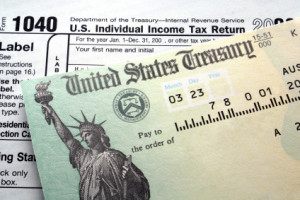 Okay, you’re on overload with all the last-minute shopping, cooking, preparing for guests and/or traveling. But try to squeeze in a few money tasks before year-end. Including:
Okay, you’re on overload with all the last-minute shopping, cooking, preparing for guests and/or traveling. But try to squeeze in a few money tasks before year-end. Including:
Contribute to an IRA. You can put money into an IRA even if you have a retirement plan through work, but you may not be able to deduct the contribution if your income is over certain limits. If, on the other hand, your income is low, you could score a valuable tax credit for your retirement contributions. The problem of course is that it can be tough to come up with the maximum contribution of $5,500 ($6,500 for those 50 and over) at year end. Luckily, you have until tax day, April 15, 2014, to make your contribution for 2013. And consider setting up regular contributions to your IRA so you don’t have to scramble for the cash next year.
Make a (back door) Roth contribution. If you can’t deduct an IRA contribution, a better option is to contribute to a Roth IRA. Roth contributions aren’t deductible but withdrawals from the accounts are tax-free in retirement (unlike regular IRA withdrawals, which incur income taxes). If your income is too high to contribute to a Roth directly, you can contribute to a regular IRA and then convert it to a Roth. This works best if you don’t already have a fat IRA account, since your tax bill for the conversion will be based on the total you have saved in regular IRAs.
Use it or lose (most) of it. If you have money set aside in a flexible spending account at work for medical or child care expenses, you typically need to use it up by year end. There are some exceptions: the Treasury Department recently said plan participants can roll up to $500 of unused funds into the next year’s plans, and some employers extend the deadline from Dec. 31 to mid-March.
Accelerate and delay. If you don’t expect a big change in your tax circumstances, it can make sense to delay income into 2014 (by asking your boss to pay a bonus next year instead of this, for example) and to accelerate deductions by paying mortgage, property tax or medical bills for January in December.
Get generous. If you itemize your deductions, you can get a tax break for your charitable contributions. Again, rushing to get those in at the last minute isn’t ideal, so consider setting up regular contributions such as paycheck deductions or monthly payments to your favorite nonprofits. No extra cash? “Noncash” donations—such as clothes or household items—can earn you a deduction as well. They just have to be in good condition and given to a recognized charity.